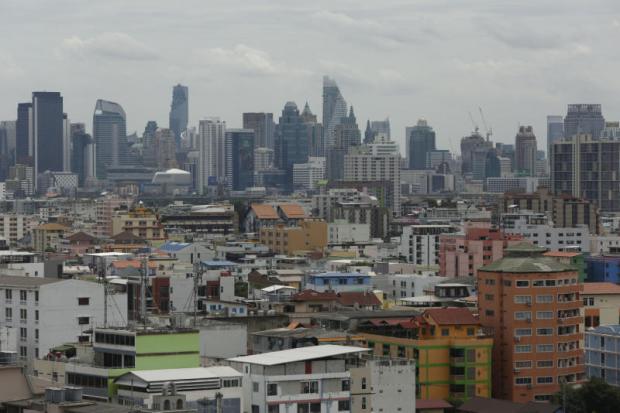Thailand: Location factor for land tax charges
The official appraised value of land, which is used as a factor to determine land and buildings tax bills, will vary depending on property locations but that of buildings will be a flat rate across the country.
This means the wealthy would be liable for a higher property tax if they live in more expensive areas, said Chakkrit Parapuntakul, director-general of the Treasury Department.
However, the assessed value of buildings will be the same nationwide to facilitate the tax process, as otherwise the department would have to hire appraisal advisers to evaluate the price of each and every building, he said.
The land and buildings tax, which will replace the outdated house and land tax and the local development tax, is aimed at narrowing income disparity, expanding the national taxpayer base, increasing tax income for local administrations and improving land use across the country.
The draft bill on the new property tax will soon be deliberated by the National Legislative Assembly after winning cabinet approval last week and being reviewed by the Council of State. It is expected to come into effect next year.
Mr Chakkrit said the department is accelerating appraisals of every land parcel. The value of 17 million individual plots have been assessed, leaving 15 million plots unappraised.
Assessment is expected to be finished by year-end, at which point the Treasury Department wants to form a national land price database linked to the Land Department’s database. The database information will be sold to the private sector in the future, he said.
Replacing appraisal prices for block areas with land parcels is meant to make property tax evaluation fairer, as the latter will be closer to real market prices, said Mr Chakkrit.
The Treasury Department’s current appraisal prices are largely 20-30% lower than market prices as more factors have been used to determine the market price, he said. The official appraisal price is typically set below the market price to reduce disputes with taxpayers, said Mr Chakkrit.
Issara Boonyoung, honorary president of the Housing Business Association, agreed with the government’s decision to tax land based on location, and a flat rate for buildings.
The method is fair, he said, and similar to land and building taxes in other countries as locations can have different value depending on the infrastructure in the area and the capacity for land prices to appreciate over time, unlike buildings, which tend to depreciate in value as they gets older.
Mr Issara added that the government should put more focus on educating the public on the difference between land tax and buildings tax, as many people are under the impression that law will require them to pay tax only on the land and not on the building.
The draft bill calls for the tax to be levied on first-home owners and farmland appraised at 50 million baht and higher. A tax rate of 0.05% will be applied to first homes and agricultural land worth between 50 million baht and 100 million, and a 0.1% rate for homes above 100 million.
People owning second homes will be taxed in a range of 0.03-0.1% of the appraisal price, depending on the value of the property.
The tax on vacant land will rise by 0.5 percentage points every three years up to a cap of 5%, while land for commercial and industrial use will be levied from 0.3-1.5%.
Source: http://property.bangkokpost.com/news/1230052/location-factor-for-land-tax-charges


 English
English




